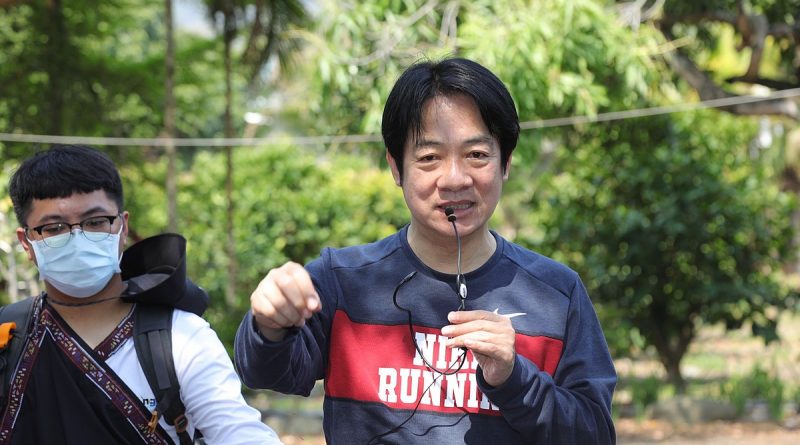Taiwan Elects Pro-Independent President Lai Ching-te
Ryan Campbell
Staff Writer
On January 13, Taiwan elected Lai Ching-te, a member of the Democratic People’s Party (DPP), to be its next president. Ching-te won the three-way race with 40 percent of the vote. The results signify the continuing position of Taiwan to distance itself from China, but Beijing’s open criticism of the new president-elect could spell trouble for relations across the strait.
Ching-te’s win denotes the 3rd-straight term for the DPP, as Tsai Ing-wen, Taiwan’s current president, served two terms. But his victory was anything but resounding. The candidate for Kuomintang (KMT), China’s preferred party to win, won 33 percent of the vote, and a newly created party, the Taiwan People’s Party (TPP), took 26 percent of the vote, according to CNN. And while the DPP won the presidency, CNN also reports that they lost their majority in the legislature, now only holding 51 of the 113 seats. This year’s elections also had the weakest turnout in Taiwanese history, says CNBC, with only 71.9 percent of eligible voters turning out to vote.
Lai, a former doctor, got his start in politics during the military crisis on the Taiwan Strait in 1996. CNN reports that the crisis pushed Lai to give up his old life as a physician and go into politics full-time. He successfully ran for a seat in the national assembly and from there continued to climb political ranks, states The New York Times. After serving 11 years in the National Assembly, he became the mayor of Tainan, a large city on the southwest coast of Taiwan, and was selected as Tsai Ing-wen’s vice president in 2017. Lai has been characterized as blunt, hard-working, and clear in his distinctions between right and wrong, further reports The New York Times, an attitude which has gained him many supporters but also landed him in trouble with Beijing.
For the majority of his time in politics, Lai was a fervent supporter of Taiwanese independence, writes TIME, an attitude that Beijing has certainly taken note of. In one of his most famous quotes, Lai described himself as a “pragmatic worker for Taiwanese independence,” something Beijing has never truly forgotten, reports CNN. During his campaign, however, such views seem to have mellowed. Now instead of calling for an independence movement, Lai has adopted the more nuanced view that Taiwan does not need to declare independence in order to be its own democratic state, according to The New York Times. The view aligns with the majority of the Taiwanese people, who want to avoid a formal declaration of separation from China, writes TIME.
However, Lai’s new stance does not imply that the island is considering reunification with China. According to CNN, less than 3 percent of people living in Taiwan identify as Chinese, and the election of a firm voice for a democratic Taiwan shows that people would rather maintain the status quo of the practical independence that Taiwan has now. The Washington Post also states that Lai is focusing on strengthening ties with other global democracies rather than continuing conflict with China.
For his part, Lai has left the door open to possible talks with China, but as ABC News reports, the chances of that happening are close to zero. Beijing has not only criticized the DPP but also Lai Ching-te by name. Considering that, according to The New York Times, China has called Lai a “separatist” and “trouble-maker,” it is unlikely that talks will occur at all. CNBC reports that China has dismissed the outcome of the election altogether, saying that the results do not represent public opinion. The Washington Post writes that Lai, however, considers the DPP as nothing more than a reflection of public opinion.
Image courtesy of Flickr


